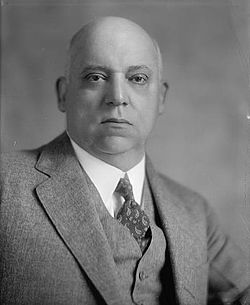| |||||||||||||||||
| |||||||||||||||||
 County results Stanley: 50–60% 60–70% 70–80% 80–90% Bruner: 50–60% 60–70% 70–80% 80–90% >90% | |||||||||||||||||
| |||||||||||||||||
| Elections in Kentucky |
|---|
 |
The 1918 United States Senate election in Kentucky took place on November 7, 1918. Incumbent Senator Ollie M. James sought a second term in office but died on August 18. He was replaced on the Democratic ticket by Governor Augustus Owsley Stanley, who defeated Republican Ben Bruner.

